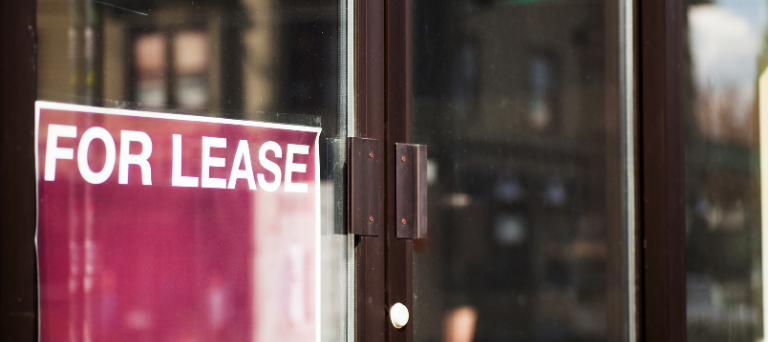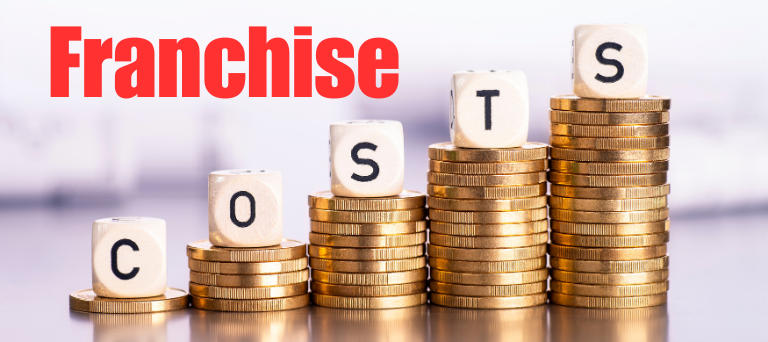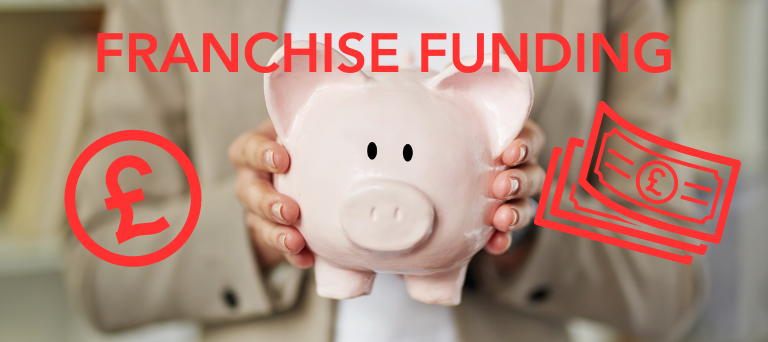If you want to start a
A Summary of the Most Important Franchise
Upfront Costs:
Franchise feefranchise fee- Equipment and inventory costs (e.g. Subway requires an initial investment of $116,000 to $263,000)
- Renovations to the location (e.g. KFC may require up to $1 million in renovations for a new location)
Ongoing Costs :
Royalty fees (e.g. 5% of gross sales for Dunkin’ Donuts)Advertising fees (e.g. 4% of gross sales for Taco Bell)- Training fees (e.g. 6% of gross sales for 7-Eleven)
Hidden Costs:
- Legal fees (e.g. hiring a solicitor to review the
franchise - Accounting services (e.g. bookkeeping and tax preparation)
- Insurance (e.g. liability insurance for a restaurant)
- Ongoing training and support (e.g. attending conferences)
It’s important to remember that the exact costs and percentages can vary a lot based on the
Up-Front Costs: The Price of Admission
When you think about how much
A small to medium-sized
The
The Lease

One of your biggest recurring expenses will be your lease. The lease is one of the fixed costs of your business. No matter how well things go, a lease that is more expensive than it needs to be will continue to cut into your income month after month, for a long time to come.
Many people who have started
Most leases have a surprising amount of flexibility, so take your time and talk to the owner to see what kind of arrangements you might be able to make.
Often, you can get a lower lease price for the first few months or years, until your business gets on its feet.
Furthermore, the lease price could be reduced if you add fixtures or make other improvements to increase the property’s value. If you’re going to fix the owner’s place, you might as well get paid for it.
Equipment and Inventory
This comprises the cost of all the materials needed to build a store on a site or turn a rented site into a store. This includes adding signs, front pieces, counters, tables, chairs, and anything else that gives the store its look and functionality.
If you want to build a restaurant
Franchise Fee
The
In exchange for your
Ongoing Costs : The Price of Staying in the Game
Upfront costs are just the beginning – there are also
These costs may seem like a burden, but they’re a small price to pay for the help and resources that come with a
Once you’ve paid your
The next few months will show if you can figure out how much it takes to run the business and make enough money to cover those costs. Every business has some costs that can’t be avoided and are part of the business’s bottom line.
Obviously, you will need to ensure you have sufficient working capital to meet your ongoing costs, especially during the initial start-up phase. Most franchisees will need some kind of outside funding including bank loans to meet the financial needs of the business.
Franchise Royalty Fees

A
Because of this fee, you will continue to receive support from the
Types of Franchise Royalty Fees
Here are some of the most common
1. Fixed Percentage Royalty Fees
When you
There are various ways to generate this money. Sales of goods, services, and memberships that you offer in addition to your main product or service.
When starting a company, a flat
2. Increasing Percentage Royalty Fees
This
Most likely, the
3. Decreasing Percentage Franchise
Even though these models sound like they are the opposite of Increasing Percentage Royalty models, they are not. With this model, the amount of sales a
If the
A lower
If sales keep going up after that time, the
4. Transaction-Based Royalty Fees
Not all royalty agreements have to do with direct sales. For some companies that involve bigger-scale transactions (like the hotel industry), royalties may be based on a set fee per transaction. Even though these royalties are similar to fixed percentage royalties, they only take a set amount from each sale instead of a percentage.
5. Fixed Royalty Fees
Fixed royalties, not to be confused with fixed percentage royalties, are just a set monthly fee that a
These royalties make sure that the
6. Minimum Royalty Fees
Minimum royalty arrangements are sometimes used along with another type of royalty, which is usually based on a percentage.
In these arrangements, a
A minimum royalty agreement, like a fixed royalty agreement, puts all the risk on the
7. No Fee Arrangement
Since neither the
Can a Franchise Royalty Fee be Negotiated?
Yes, a
Additionally,
Advertising Levy

A
It allows the
This can save money for
The use of
Details of the advertising levy, such as how much money is collected and how it is spent, can be different from one
Local Marketing
This doesn’t mean that you won’t also need to do some neighbourhood marketing. Local marketing can be very important for small companies that want to reach their ideal customers in the area.
This may include tactics such as local SEO, community events, and targeted advertising. The
Furthermore, they may give
Staff, Lease, Utilities and Taxes
Other fixed costs of a business are the cost of employees (you should always have a few more than you need, in case someone has to leave for some reason and you need someone to keep the store running), the
Your business needs to be able to handle these costs in order to survive. It’s important to review your costs often to make sure they aren’t eating up too much of your revenue and to find places where you might be able to save money without sacrificing the quality of your business. This will help you keep a healthy profit margin and make sure that your business will be successful in the long run.
Hidden Costs: The Price of Surprises
There are some hidden costs you should be aware of, even though the upfront and

Legal Fees
Legal fees are an important hidden cost. Before you sign a
In addition, once you come to renew your franchise at the end of the initial term, you may be required to pay some kind of renewal fee or other legal fee. This should be set out right from when you sign the franchise agreement.
Accounting Services
Another hidden cost is accounting services.
Typically,
This can cost several thousand pounds per year, depending on the size of the business and how complicated the financial reporting needs are.
Insurance
Insurance is also a big secret cost that you should think about. Most
In addition to liability insurance,
Ongoing Training and Support
Lastly, it’s important to think about how much training and support could cost in the long run. Many
Also,
In the end, the upfront and
Saving Money on All Costs
Now that you know the
- Look into different
franchise options and compare them to find one with lowerstart-up costs . - Negotiate! Usually, you can’t negotiate the
franchise feefranchisors may be ready to work with you on other parts of the agreement. Some fees, likeadvertising fees , might be able to be lowered or waived. - Get financing. Many
franchisors offer financing options to helpfranchisees cover the costs ofstarting a business . - Keep an eye on your inventory. Don’t keep too much in stock, as this can quickly cut into your profits.
- Consider buying used equipment and inventory to save money on initial investments.
- Plan and budget carefully to avoid surprises and unexpected expenses.
- Join a
franchisee association or network to benefit from collective bargaining power and access to resources and information. - Hire an accountant and a lawyer with a good reputation and a lot of experience to help you deal with legal and financial problems and ensure you comply with all rules and regulations.
- Look into other finance options, like loans, grants, or donations, to supplement your own funds and reduce your reliance on high-interest loans or credit cards.
The Bottom Line
You can read more about the pros and cons of franchising here.
Please note: None of the above constitutes financial and/or legal advice. We advise people to seek their own professional advice suited to their personal circumstances. You can find franchise specialist legal and accounting services in our directory.





